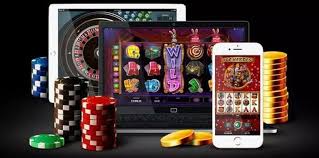what is the most trusted Exploring trust in institutions, media, brands and people

When people ask “what is the most trusted” in society today, the answers are complex and vary by context — from institutions and brands to technology and personal relationships. Trust is not a static label; it is earned, measured, and maintained through consistent behavior, transparency, and accountability. For readers seeking reliable sources or dependable partners, understanding the signals of trustworthiness makes choices clearer. what is the most trusted online casino in the uk? ZoloBet com
Trust as a concept spans cognitive and emotional dimensions. Cognitively, we assess whether an entity has the competence, expertise, and reliability to perform a promised task. Emotionally, we judge whether that entity shares our values, treats people fairly, and acts with integrity when things go wrong. Both dimensions matter: a highly competent service provider who behaves unethically will lose long-term trust, while a well-meaning but incompetent actor will struggle to be relied upon.
Which institutions are most trusted? Polls and surveys often rank small organizations differently from large ones. Locally rooted institutions — like neighborhood medical clinics, community associations, or small businesses with visible owners — frequently enjoy higher trust because people can directly observe behavior and hold leaders accountable. On a national scale, confidence in government, media, and large corporations fluctuates with political climates and major incidents. Independent watchdogs, public health agencies, and established scientific organizations tend to maintain higher trust when they communicate transparently and base recommendations on clear evidence.
In the world of media and information, “most trusted” depends on editorial standards and perceived impartiality. Outlets that clearly separate opinion from reporting, cite sources, correct mistakes promptly, and display transparency about funding and conflicts of interest gain credibility. Fact-checking organizations and academic publishers are often cited as reliable because they employ rigorous verification. Social platforms, by contrast, struggle with trust because the content mix includes both verified reporting and unverified user-generated material; their perceived neutrality varies across user groups.

When it comes to brands and companies, trust is built through consistent customer experiences and fair practices. Companies that protect user data, treat employees well, and respond honestly when issues arise earn loyalty. Certifications, third-party audits, and long-term reputations can all serve as trust signals. Customers often trust brands that demonstrate social responsibility, but performative gestures without substantive policy change can undermine credibility. In rapidly changing industries like fintech or online gaming, clear licensing, compliance with regulation, and transparent terms are critical trust markers.
Technology introduces new trust dynamics. For instance, people often ask whether algorithms, artificial intelligence, or automation are “most trusted.” Trust in technology depends on explainability, privacy safeguards, and observable reliability. Open-source projects frequently gain trust because their code is auditable and contributors are visible; proprietary systems can be trusted when companies provide independent audits and clear governance. Security certification, strong encryption practices, and user control over data also influence trust in digital services and devices.
At the interpersonal level, what is the most trusted is often a person who combines competence with empathy. Leaders who listen, admit mistakes, and act consistently tend to be trusted more than those who issue grand promises but fail to follow through. Trust in relationships grows from repeated positive interactions, mutual vulnerability, and demonstrated loyalty. Professional relationships also benefit from clear expectations, shared standards, and reliable communication.
How do you evaluate trust in practice? A useful checklist includes: 1) Verify credentials and track record — does the entity have verifiable achievements? 2) Check transparency — are sources, funding, and potential conflicts disclosed? 3) Look for independent verification — are there third-party audits, certifications, or peer reviews? 4) Observe behavior under stress — how does the entity respond to mistakes or crises? 5) Consider alignment of values — does the entity’s mission and daily actions match your expectations? Applying this checklist across media, brands, and individuals will help identify who or what is the most trusted for your needs.

Trust is not binary. It scales and varies by scope: you may trust a financial advisor for retirement planning but not for startup advice; trust a news outlet for science coverage but not for political commentary. This contextual trust requires nuanced decisions. Diversifying trusted sources — relying on multiple experts, cross-checking information, and favoring consensus among qualified voices — reduces the risk of misplaced confidence.
Building trust takes time and intentionality. Organizations should prioritize clear communication, set realistic expectations, and demonstrate accountability with concrete actions. Individuals who want to be trusted can cultivate reliability, maintain consistency, and practice active listening. Repairing broken trust requires genuine apology, concrete corrective measures, and sustained improvement over time.
Looking forward, the question what is the most trusted will continue to evolve as technologies change, institutions adapt, and public expectations shift. Trust will increasingly hinge on transparency, ethical use of data, and the ability of entities to explain their decisions to the people affected by them. The most trusted actors will be those who combine expertise with ethical stewardship and who invite verification rather than hiding practices behind marketing language.
In summary, “what is the most trusted” depends on context: local, transparent institutions; independent scientific and fact-checking bodies; brands with consistent ethical practices; open and auditable technologies; and individuals who pair competence with integrity. By applying practical checks — verifying credentials, seeking independent validation, assessing behavior under pressure, and aligning values — anyone can make better judgments about whom to trust. Ultimately, trust is earned through consistent, transparent, and accountable behavior, and those qualities will remain the best indicators of what is the most trusted in any era.